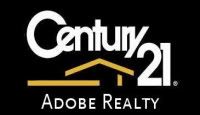ABOUT THE MONEY AND HOA'S
If you are thinking of investing in a condominium, you should read this article.
EVERY HOMEOWNERS ASSOCIATION RECEIVES LETTERS AND COMPLAINTS REGARDING THE FINANCIAL STATUS OF THEIR ASSOCIATION. While Boards have tried to explain the "why's and wherefore's" in various communications, it still keeps coming up.
The question usually has something to do with "Where does all the money go"; or "I'm not paying for someone else's responsibility". Both of these statements are entirely understandable. While blaming everything on the economy is getting old and seems to be the scapegoat, it is entirely the problem at hand.
Unfortunately "fair" doesn't enter the picture when discussing the affect on everyone. In plain language, there are many Associations that have multiple units which have gone into bankruptcy and/or foreclosure. How does that affect you as a homeowner? Answer: These units have not paid their monthly assessments (sometimes referred to as 'dues') for in some cases as much as a year but operating money has to come from somewhere.
To protect the Association as much as possible, legal fees are encountered on top of the lack of collecting the monthly amounts. It is easy to see, the deficit adds up very quickly. In fact, for many Associations, this has totaled in the hundreds of thousands of dollars that is not collected for operating expenses. (Banks do not have to pay back-owed monies in a foreclosure situation so that income is lost by the Association and that's that.) This results in an absolute reduction in monies available to conduct and maintain the Association. In addition, certainly no deposits can be made to the Reserves (savings) for future projects.
There is often the statement made, "I'm not paying for someone else's responsibility". However, in order to maintain the value and health of a complex, all carry the load. When you own a condominium, you own a percentage of the community for which you are responsible. While the statement expresses feelings we all have, owning a portion of the entirety puts the burden on all. The remaining owners in good standing are in the position of carrying the load… or if not, becoming one of the statistics as a foreclosure, bankruptcy or lien.
So when the question is asked, "Where does all the money go?", the inference that "all the money" which is being collected by the Association is more than adequate, which is simply the opposite: It is not enough to pay all the operating expenses, which are usually cut to the bare bones, nor enough to continue to set money aside for a rainy day also known as 'Reserves", not to mention improvements.
A Board has a fiduciary responsibility of maintenance and safety within the community. When assessments are considered necessary, it is in order to perform those duties on behalf of all homeowners. The alternative is to allow a community to run down, and in so doing, everyone loses property value.
If you are considering the purchase of a condominium, it would be prudent to attend an open Board Meeting, review a full year of financial statements, request copies of six months' minutes, and review the current Reserve Study. You may want to inquire as to the total number of units that are in default. All of these documents should be made available to you once you enter escrow and your approval should be a contingency of the purchase. Once you are a homeowner and a member of an association, you may want to consider running for a position on the Board to be a part of the decision-making.




0 comments:
Post a Comment